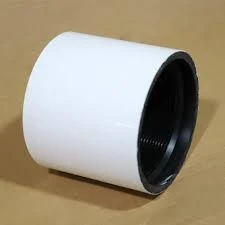- Afrikaans
- Albanian
- Amharic
- Arabic
- Armenian
- Azerbaijani
- Basque
- Belarusian
- Bengali
- Bosnian
- Bulgarian
- Catalan
- Cebuano
- Corsican
- Croatian
- Czech
- Danish
- Dutch
- English
- Esperanto
- Estonian
- Finnish
- French
- Frisian
- Galician
- Georgian
- German
- Greek
- Gujarati
- Haitian Creole
- hausa
- hawaiian
- Hebrew
- Hindi
- Miao
- Hungarian
- Icelandic
- igbo
- Indonesian
- irish
- Italian
- Japanese
- Javanese
- Kannada
- kazakh
- Khmer
- Rwandese
- Korean
- Kurdish
- Kyrgyz
- Lao
- Latin
- Latvian
- Lithuanian
- Luxembourgish
- Macedonian
- Malgashi
- Malay
- Malayalam
- Maltese
- Maori
- Marathi
- Mongolian
- Myanmar
- Nepali
- Norwegian
- Norwegian
- Occitan
- Pashto
- Persian
- Polish
- Portuguese
- Punjabi
- Romanian
- Russian
- Samoan
- Scottish Gaelic
- Serbian
- Sesotho
- Shona
- Sindhi
- Sinhala
- Slovak
- Slovenian
- Somali
- Spanish
- Sundanese
- Swahili
- Swedish
- Tagalog
- Tajik
- Tamil
- Tatar
- Telugu
- Thai
- Turkish
- Turkmen
- Ukrainian
- Urdu
- Uighur
- Uzbek
- Vietnamese
- Welsh
- Bantu
- Yiddish
- Yoruba
- Zulu
High Strength 3 4% Steel Couplings for Enhanced Performance and Durability in Mechanical Applications
Understanding 304 Steel Couplings A Comprehensive Guide
In the field of engineering and manufacturing, understanding materials and their properties is crucial to the success and longevity of various applications. One such material that stands out due to its versatility and strength is stainless steel, particularly 304 stainless steel. This article will delve into 304 steel coupling, exploring its characteristics, applications, advantages, and considerations that one should be aware of when using this material.
What is 304 Stainless Steel?
304 stainless steel is one of the most widely used grades of stainless steel, primarily due to its excellent corrosion resistance, formability, and weldability. It is composed of 18% chromium and 8% nickel, offering a combination of strength and ductility, making it suitable for numerous applications in various industries. The alloy's ability to resist oxidation, acid corrosion, and rust makes it a popular choice in environments where moisture is prevalent.
Characteristics of 304 Steel Couplings
304 steel couplings are components used to connect two pipes or hoses together. They are integral in ensuring a leak-free flow between systems, be it in plumbing, automotive, or industrial applications. Some notable characteristics of 304 steel couplings include
1. Corrosion Resistance Thanks to its chromium content, 304 stainless steel exhibits excellent resistance to oxidation and corrosion, making it ideal for use in harsh environments, including those exposed to chemicals or saltwater.
2. Strength and Ductility This steel grade provides substantial tensile strength, allowing it to withstand high pressures. Its ductility enables it to be shaped without cracking, permitting easy installation in various configurations.
3. Hygienic Properties 304 stainless steel is non-porous and can be easily cleaned, which is critical in food processing, medical, and pharmaceutical applications.
4. Temperature Resistance It can maintain its integrity and performance in a wide range of temperatures, further enhancing its usability in various settings.
Applications of 304 Steel Couplings
Due to its beneficial properties, 304 steel couplings find applications across multiple industries, including
- Plumbing Used in residential and commercial plumbing systems to connect pipes, ensuring water flow without leaks. - Food and Beverage Utilized in the food industry for piping systems that transport liquids, food products, or gases, due to its sanitary characteristics.
- Automotive Employed in the automotive sector for fuel, oil, and exhaust systems due to its heat tolerance and reliability.
- Chemical Processing Used in chemical plants to connect various piping systems, given its resistance to corrosive substances.
3 4 steel coupling

- Oil and Gas Commonly found in oil and gas pipelines and facilities, where durability and reliability are paramount.
Advantages of Using 304 Steel Couplings
The use of 304 steel couplings offers several advantages
1. Durability They provide long-lasting performance, minimizing the need for frequent replacements.
2. Cost-Effectiveness While stainless steel may have a higher initial cost compared to other materials, its longevity and low maintenance requirements make it a cost-effective option over time.
3. Ease of Installation The versatility and formability of 304 stainless steel allow for straightforward installation procedures.
4. Aesthetic Appeal The shiny, smooth surface of 304 stainless steel can enhance the visual appeal of installations, particularly in visible piping systems.
Considerations When Using 304 Steel Couplings
While 304 stainless steel couplings offer numerous benefits, it is essential to consider certain factors
1. Chloride Exposure While 304 stainless steel is resistant to many corrosive agents, it can be vulnerable to chloride-induced pitting. In environments where exposure to chlorides is high, alternative materials like 316 stainless steel may be more suitable.
2. Temperature Limitations Although 304 stainless steel can withstand a wide range of temperatures, it is advisable to assess specific applications, as extreme heat could affect performance.
3. Mechanical Stress Proper evaluation must be conducted to ensure that the couplings can handle the mechanical stresses of the system they are part of.
Conclusion
304 steel couplings are vital components that play a significant role in various industrial applications. With its remarkable properties of corrosion resistance, strength, and versatility, it has become a preferred choice in many sectors. By understanding the characteristics, applications, advantages, and considerations associated with 304 stainless steel couplings, engineers and manufacturers can make informed decisions that contribute to the efficiency and longevity of their systems. As with any material, careful selection and application are key to achieving optimal results.
-
Tubing Pup Joints: Essential Components for Oil and Gas OperationsNewsJul.10,2025
-
Pup Joints: Essential Components for Reliable Drilling OperationsNewsJul.10,2025
-
Pipe Couplings: Connecting Your World EfficientlyNewsJul.10,2025
-
Mastering Oilfield Operations with Quality Tubing and CasingNewsJul.10,2025
-
High-Quality Casing Couplings for Every NeedNewsJul.10,2025
-
Boost Your Drilling Efficiency with Premium Crossover Tools & Seating NipplesNewsJul.10,2025







